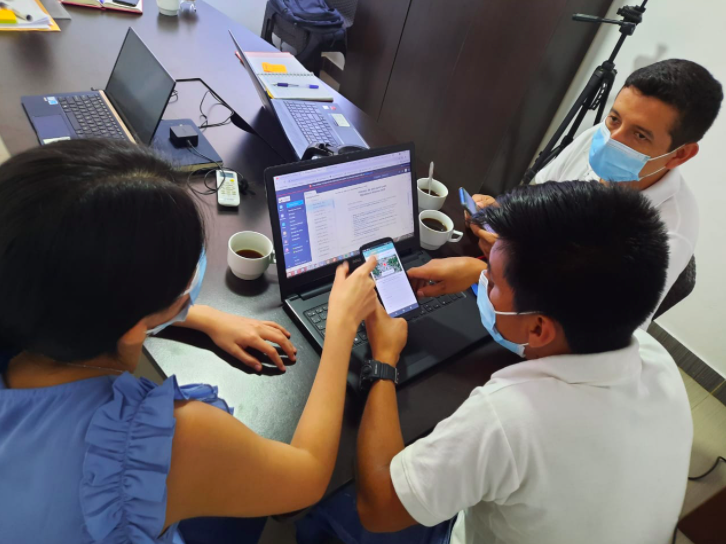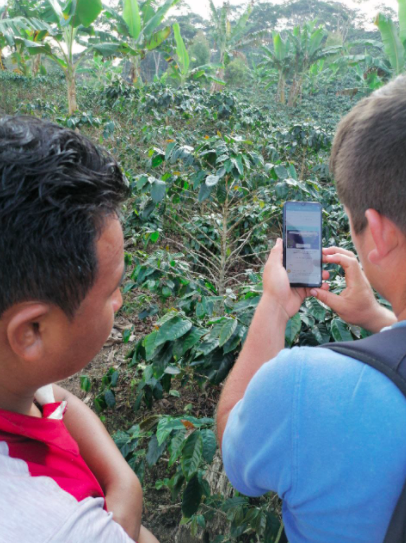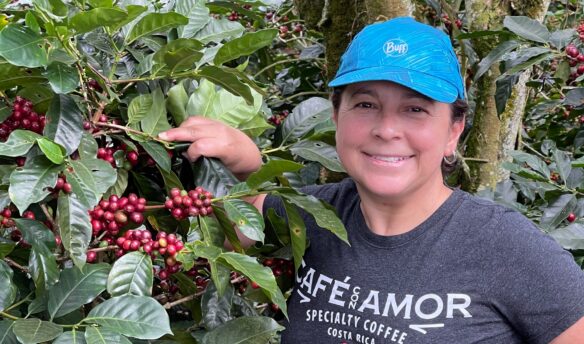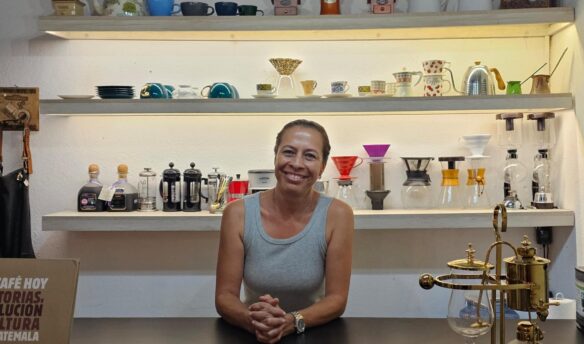It is no secret that the technology behind blockchain is often described as “revolutionary,” even though its most notable application to date has been in the cryptocurrency market. In recent years, mining cryptocurrencies has been criticized for using massive amounts of energy, resulting in a large carbon footprint.
However, the underlying technology behind blockchain has the potential to be extended to a wide range of non-financial areas, including governance, commerce, healthcare, education, and logistics. A few industries are already starting to explore how they can use blockchain to improve transparency and pricing accuracy: the coffee industry is one example.
Currently, most coffee beans are traded on commodity exchanges, where buyers and sellers connect and negotiate coffee futures contracts. These contracts are agreements to buy or sell coffee at a specified price and time in the future, but the terms of the exchange are settled on the contract date. This solution eliminates the concern of price fluctuations between when a contract is signed and when coffee is delivered (which can take anywhere from a few weeks to six months or more) and ensures that farmers have guaranteed buyers for their beans.
Coffee has been bought and sold using this system for many years. While it has its benefits, it also has drawbacks: primarily, there’s no transparency regarding pricing and data collection. The coffee supply chain is a complex system with many different players who have their own business agendas. Data collection and management are often done manually, leading to inaccuracies and inconsistencies. Furthermore, producers often lack visibility into the final market price of their coffee, as there can be several go-betweens involved in the supply chain.
Lately, however, there has been a growing interest in using blockchain technology in coffee-related operations to address some of these issues. I recently spoke with Isabel van Bemmelen, the Managing Director of the Progreso Foundation and Beyco (Beyond coffee), a coffee trading platform launched in 2018 powered by blockchain technology. With the rise of many digital initiatives in the coffee sector, blockchain may help build a fair and transparent marketplace for coffee farmers and perhaps positively impact the coffee supply chain.
A Traceable Chain
So, what is blockchain—and how can it benefit the coffee sector? Blockchain is a distributed database that allows for secure, transparent, and tamper-proof transactions. This is made possible through cryptographic keys (unique digital signatures) and a decentralized network of computers, often referred to as ‘nodes,’ that validate and record transactions.
Since the data is distributed across a network, there is no single point of failure, and it is much more difficult to hack than a centralized database. This makes a blockchain-based platform such as Beyco ideal for coffee trading, as it allows buyers and sellers to connect and negotiate contracts more efficiently and in a trustworthy manner. Blockchain can help create a more accurate and transparent picture of the coffee supply chain by providing a digital record of every transaction.
Such a record includes information on who owns the data, when it was created, and where it came from. All records have timestamps and unique cryptographic signatures so that everyone involved can see all the information. This provides a verifiable and auditable history of everything recorded on the blockchain.
Progreso is an Amsterdam-based NGO with over twenty years of experience in coffee and cocoa value chains. They launched Beyco in 2018 to increase digital inclusion in the coffee sector and allow producer organizations to form smart contracts using blockchain technology. The Beyco platform further uses blockchain technology to verify authenticity regarding data ownership and new user registrations.
“We look at every new registration and perform due diligence checks to make sure we facilitate a platform of trusted parties,” says van Bemmelen. “Once a party is registered, this user is the owner of their data and can choose what information they would like to share.” After signing a contract on the platform, users can share specific contract details with others or choose to keep the agreement between the two parties who signed it.
In 2020, the Beyco team further developed the Beyco app, allowing farmers to track deliveries and payments. The app can also be used offline as there is often no internet in rural areas. When connecting to the internet, the data synchronizes with the Beyco platform, giving users clear insights into who contributed to a particular coffee offer and what prices were paid. Users decide what to share and make public; if they don’t want to publish data, they can use it as an internal management system.
Understanding Data and Costs
Collecting data on past transactions on a digital platform is simply not enough if a producer cannot understand or benefit from it. Blockchain-based tools focusing on monitoring and analyzing data can help producers make more informed decisions about pricing their coffee.
It’s also important to remember that coffee is an agricultural product. Therefore, producers need to estimate their production costs to ask for a price that will cover expenses and allow them to make a profit. The cost of production varies widely based on a long list of variables: country origin, farm size, yield, labor, cost of goods, and more.
Some organizations resolve this by providing the producers with access to credit lines. A credit line is a pool of money that a financial institution extends to a borrower, and the borrower can draw on the credit line at any time, for any purpose. Individual coffee producers can use the credit line to finance their production costs, such as buying inputs like fertilizer or paying workers. Coffee cooperatives can also use credit lines to pay their members for the coffee they deliver and cover the logistics cost of exporting coffee.
In mid-June of this year, Beyco launched the Financier Profile, a new service that allows users to connect with potential impact investors. Such investors seek to finance businesses and organizations that have a positive social or environmental impact and provide a financial return on their investment. Through the Financier Profile, investors can verify and monitor a contract execution between a producer and a seller in real-time by connecting credit lines to this contract. This reduces risk and increases efficiency during business transactions. Lenders may provide loans directly to producers, allowing organizations to establish a credit history for future borrowing.
Oikocredit and Rabo Foundation are the first impact lenders active on Beyco. “We finance more than 500 coffee contracts per year, and manual monitoring is very labor intensive,” says Eduard Walkers, Regional Director LAC at Oikocredit in Peru. “By digitizing the process, we can work more efficiently and support even smaller cooperatives.”
Van Bemmelen explains that when producer organizations, such as cooperatives, have credit lines available for contracts, it makes it easier for them to buy the coffee from their members and export it on time for the requested quality. A great example is Frutos de Selva, a Peruvian cooperative of 137 families. Normally, the cooperative would have to wait until the delivery of the coffee to the final buyer to receive payment and then use that money to pay their members and finance the export. Through Beyco’s Financier Profile, they received a credit line based on their contract, which allowed them to pay their members immediately and finance the export themselves.
In an industry where prices can be volatile and where there is a lack of transparency around how prices are set, blockchain-based tools that focus on monitoring and analyzing data can help coffee producers make more informed decisions about pricing their coffee. Initiatives such as Beyco prove how blockchain can directly and positively impact the coffee industry, particularly at the farm level.
Aside from having access to information, it is imperative to understand who benefits from the data and how producers can use it to improve their business. After all, knowledge is power, and with the right tools, blockchain can help build a more transparent coffee industry for all.
Cover photo by Shubham Dhage. All other photos courtesy of Isabel van Bemmelen.
Vasileia Fanarioti is a freelance writer and editor with a focus on coffee. Vasileia enjoys observing cultures through the coffee lens and telling stories about the people and communities behind every cup.


















